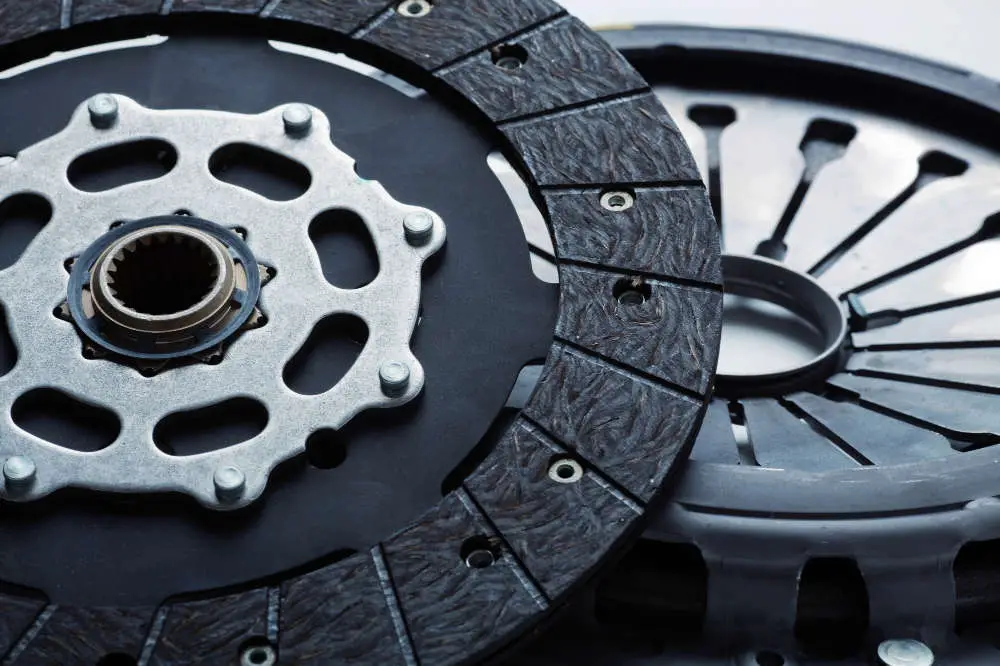In any manual vehicle, the clutch is the mechanical element that transmits rotational power from the engine to the wheels. The clutch is a vehicle component that joins two or more spinning shafts.
Many cars have some problems with the clutch, but we are here today to talk about the Porsche 944 model.
A stunning beast vehicle with a minor problem that can cause headaches for the owners.
But, stay positive because when you detect a problem, it is already halfway resolved!
In this article, we will share with you all the common clutch problems on Porsche 944 models, together with their solutions.
Advertising links are marked with *. We receive a small commission on sales, nothing changes for you.
How Can I Recognize That My Porsche 944 Has a Clutch Problem?

There are several problems that people encounter in their car’s life. One of them being clutch problems, the Porsche 944 is still one of the most wanted and one of the most impressive vehicles.
So, how can you detect if you’re having clutch problems?
For example, you might experience that your clutch pedal won’t get back up when you press it. Or, to put it more simply, your clutch is stuck between the ground and the normal position. This issue sometimes expands, and you might see some liquid drooling.
Some of you might experience these issues:
- Spongy clutch pedal,
- Gear grinding when shifting,
- Extended pedal travel,
- Hydraulic leaks under the car.
These are all symptoms that one or more system components have failed.
So…. what are the system components in this whole story?
Keep reading!
Problems With System Components: Clutch Master Cylinder and Clutch Slave Cylinder
The Porsche 944 has a hydraulic clutch engagement mechanism, which means no cables are involved in clutch actuation.
Pressurized brake fluid travels from the master cylinder to the slave cylinder on the gearbox via a metal or rubber tube when you depress the clutch.
As a result, moving the system requires less physical effort.
This results in a more dependable clutch system.
But, if the slave cylinder or master cylinder becomes old and begins to leak or fail, the system can fail or break down over time.
That is why you should always check on your cylinders. You will avoid surprise replacements and all the stress that comes with them.
Let’s talk about each one more in detail.
Clutch Master Cylinder
You probably know what a clutch master cylinder is, but here is a quick explanation.
A clutch master cylinder compresses fluid inside the hydraulic clutch system. As a result, it forces the slave cylinder to operate the clutch.
How Can I Know That There are Issues With a Clutch Master Cylinder in My Porsche 944?
The clutch pedal may float to the floor when pushed if the clutch fails, causing the vehicle to try to move forward while still in gear.
The clutch will try to engage as the fluid in the master cylinder escapes compression.
In most circumstances, the clutch pedal has little to no impact on the clutch.
Can I Drive My Car if the Clutch Mater Cylinder has an Issue?
Well… it depends.
You can drive the car if the transmission shifts incorrectly and you push-start the vehicle at every stop. Then it is workable to drive the car without a functional clutch.
While this may save a few bucks on towing, it may result in the manual transmission needing to be replaced.
It’s preferable to have the car hauled away rather than risk more damage.
Can I Fix it By Myself?
There are numerous ways to fix the clutch problem by yourself. But, it is best advised to take your car to the repair shop and replace the master cylinder every 100,000 miles.
Clutch Slave Cylinder
Even though certain manual transmissions employ different technologies, the clutch slave cylinder is exclusively found in autos with a manual gearbox.
The clutch master cylinder is first flooded with compressed braking fluid.
Then, when the driver depresses the clutch pedal, it goes into the clutch slave cylinder.
This disengages your car’s clutch, allowing you to shift gears by moving the slave cylinder piston.
The clutch slave cylinder helps the clutch pedal return to its original position. This should happen when the driver takes their foot off the clutch pedal.
However, this is not always the case.
What are the Symptoms of a Faulty Slave Cylinder?
If you see any danger indications below, it’s time to replace your Porsche’s clutch slave cylinder.
Even if the clutch slave cylinder isn’t to blame, these are significant problems that might cause harm to your car.
Issues With the Clutch Pedal
If you discover that the clutch pedal isn’t working correctly, it’s probably time to repair the clutch slave cylinder.
Furthermore, if the clutch pedal sinks to the floor, is difficult to press down, or is too easy to press down, the clutch slave cylinder is faulty and must be replaced.
The slave cylinder has most likely spilled fluid.
A failing clutch slave cylinder might be the source of brake fluid leakage around the clutch pedal in your Porsche.
Issues with the Shifting
While the clutch pedal must function to shift gears, you may experience additional issues with shifting gears in your car.
The clutch slave cylinder may be blamed if your car’s gears grind when shifting.
It’s likely that the slave cylinder failed and did not completely release the clutch, resulting in grinding.
A malfunctioning clutch slave cylinder can cause gears to be challenging to change or not move at all.
If your Porsche stalls upon stopping, it’s possible that your car isn’t moving out of gear.
This might result from a faulty clutch slave pedal that must be replaced.
How to Fix a Broken Clutch Slave Cylinder in My Porsche 944?
You have to replace the clutch cylinder.
You can find all the info about replacing one online, but trust us, sometimes it is better to have a professional fix it.

Luna Meschiari is a full-blooded car nut who is well known to local garages, as each article is meticulously researched and peppered with the latest piece of information. Guess what car she’s driving right now? A RAV4 2021 Hybrid. But her heart also sleeps for pickups like the F-150. Get to know Luna better on the about us page.
Advertising links are marked with *. We receive a small commission on sales, nothing changes for you.
